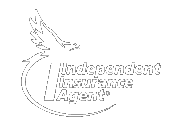In the world of business, unexpected events can strike at any time, and when it comes to property damage, the implications can be substantial. Commercial property insurance plays a crucial role in shielding businesses from the financial fallout of unforeseen property damage and liability concerns.
One complex area within this realm is determining insurance responsibility for neighboring property damage, especially when factors like natural disasters, negligence, or structural failures come into play. Navigating these complexities is essential for safeguarding your business's financial stability. Let's delve into some common situations business owners might face.
Who is responsible if a tree falls onto my commercial property?
Generally, if a tree from a neighboring property falls onto your business premises due to natural causes such as a storm, wind, or lightning, your commercial property insurance is typically responsible for covering the damage. However, if the tree falls due to negligence—like being improperly maintained or diseased—the neighbor's liability insurance might cover the costs, though proving negligence is crucial. It's also important to note that most commercial policies don't cover tree removal unless actual structural damage has occurred.
What if my neighbor’s property causes flooding on mine?
Standard commercial property insurance does not cover flood damage, even if the water comes from a neighboring property. Businesses will need a separate flood insurance policy for protection. If flooding results from the neighbor's negligence, like failing to maintain drainage or neglecting a burst pipe, their liability insurance might cover these damages, although proving negligence can be a tricky task. Additionally, if a pipe bursts on your property, most policies will cover sudden breaks but not damages from neglect, poor maintenance, or freezing without proper precautions. Sewer backups often require an endorsement.
What happens if a fire from a neighboring property spreads to mine?
If a fire spreads from a neighboring property, your commercial property insurance policy will typically cover the damages. If negligence, such as fire code violations, is involved, the neighbor's liability insurance may help cover some losses—but liability must be established for this to apply.
Who pays for debris removal after a disaster?
If a neighboring property is liable for the damage, their liability insurance might cover debris removal. However, proving negligence is necessary. If your policy covers the damage, debris removal is usually included, though it may have coverage limits. If the event causing the damage isn't covered, such as flooding without flood insurance, debris removal will likely be excluded as well.
Will my insurance cover business losses if I have to shut down?
Business interruption insurance may cover lost income if a company is forced to close due to fire or storm damage, but only if the policy includes such coverage. It's important to recognize that flood-related closures aren't covered under standard business interruption policies unless triggered by a covered peril.
Understanding how commercial insurance policies handle these situations is vital for any business owner. Regularly reviewing your insurance coverage, considering additional options like flood insurance and business interruption insurance, and consulting with an insurance professional can help ensure that your business is adequately protected against potential property-related challenges.



